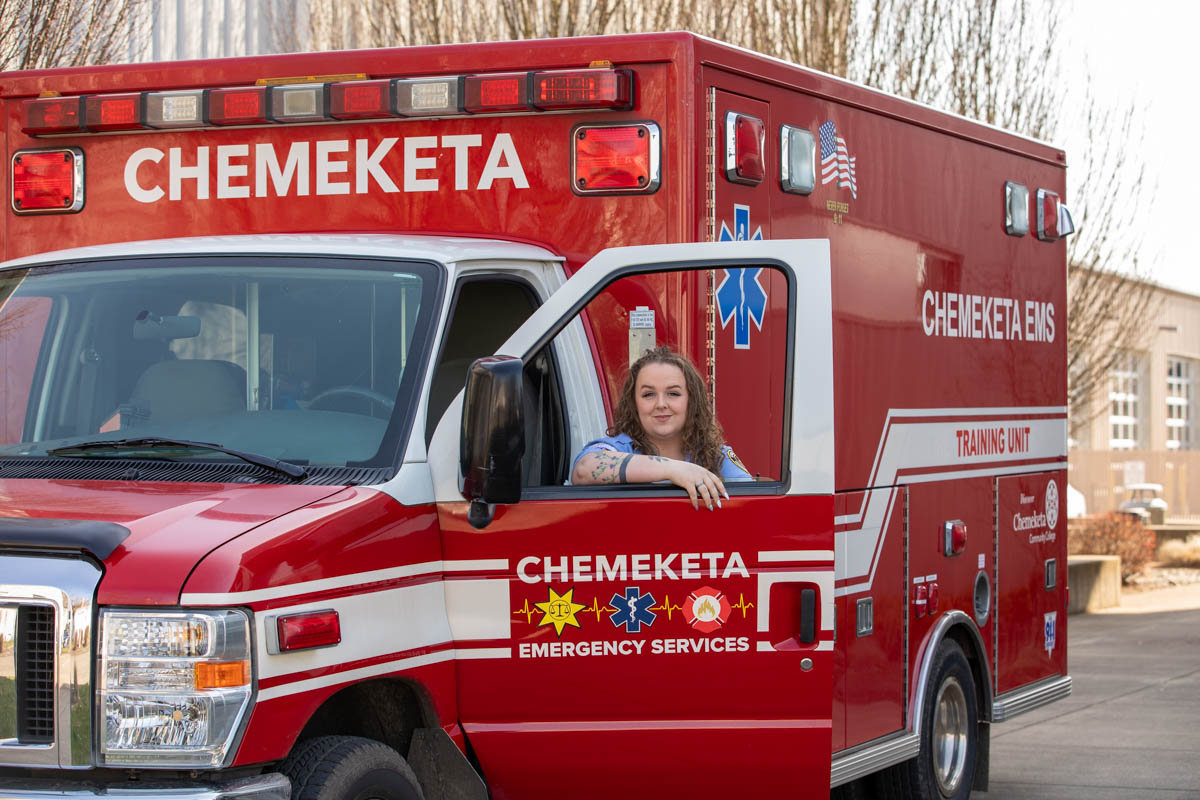
go.chemeketa.edu/emt
The Paramedicine degree program offers career training for entry-level personnel, as well as certification/licensure and continuing education courses. Chemeketa offers a diverse, experienced emergency medical services faculty, excellent classroom and laboratory facilities, and outstanding hospital and pre-hospital clinical training sites. The program is accredited by the Higher Education Coordinating Commission and the Oregon Health Authority/Emergency Medical Services (OHAEMS). Nationally, Chemeketa’s Paramedicine program is accredited by the Commission on Accreditation of Allied Health Education Programs (CAAHEP) upon the recommendation of the Committee on Accreditation of Educational Programs for the Emergency Medical Services Professions (CoAEMSP). You may contact these agencies for information about the program’s accreditation status: CAAHEP, 1361 Park Street, Clearwater, FL 33756, 727.210.2350, caahep.org; and CoAEMSP, 8301 Lakeview Parkway, Suite 111-312, Rowlett, TX 75088, 214.703.8445, fax 214.703.8992, coaemsp.org. Students successfully completing the program will be eligible to sit for the state licensure and national registry certification exam.
Paramedics may be employed by ambulance companies, fire departments, police departments, and industries. There is a great demand for EMTs and paramedics, both locally and nationally. Students working toward a paramedic license will complete approximately 250 hours of hospital clinical experience and 350-600 hours of field internship. Clinical experiences focus on developing the skills, attitudes, and work habits necessary for graduates to be successful in their field.
Program Outcomes
Students completing this degree should be able to satisfy the following outcomes:
- Assess patients and apply treatment protocols in emergency medical situations.
- Use oral and written skills to communicate effectively in anxiety producing situations with patients, families, and members of the health care team.
- Perform all basic and advanced life support skills in a safe and timely manner.
- Provide on-scene leadership in emergency medical care situations.
- Apply professional values and ethical behaviors individually and as a member of a team in providing emergency care.
Getting Started
The program has been designed to be completed in two years, if you attend full time. However, there are entry-level expectations for skill levels in reading, writing, and mathematics. The length of time you take to complete the program will depend on your skills in these areas. This program has special admission requirements and enrollment limits. To assess the time, you will need to complete the program, please call 503.399.5163.
You may earn an associate of applied science degree by successfully completing the required 103 credit hours with a grade of “C” or better in all courses.